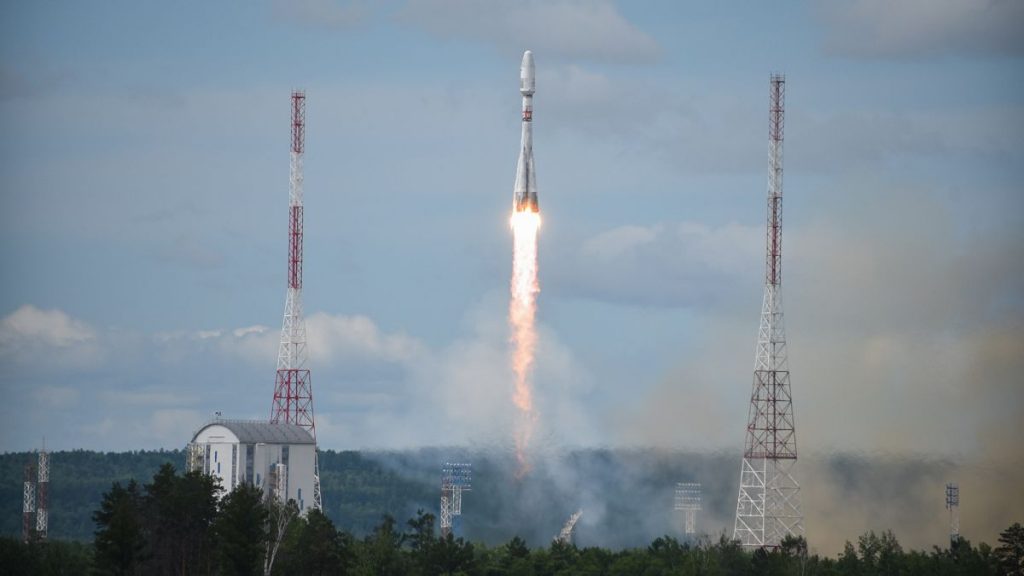The Russians sent a possible missile-detection satellite to space Wednesday (Nov. 2) as the country ramps up its rhetoric about attacking U.S. satellites over Ukraine.
A Soyuz-2.1b medium-class rocket launched with the satellite, whose purpose is not officially disclosed, at 1:48 a.m. EDT (0648 GMT or 9:48 a.m. Moscow time), according to Reuters (opens in new tab), who cited Russian news reports pointing to a ministry statement. The launch took place from Plesetsk Cosmodrome in northern Russia.
“Combat crews of the space forces … launched the Soyuz-2.1b medium-class carrier rocket with a spacecraft, in the interests of the Russian Defense Ministry,” read a Russian-language report (opens in new tab) from FederalPress.ru, one of several news sources with similar information from the ministry. (Translation provided by Google.)
The satellite’s orbit suggests it is either a GLONASS navigation satellite or, given a source on a website forum suggested the next of that series is under construction, a Kupol missile-tracking satellite, RussiaSpaceWeb’s Anatoly Zak said in a launch report (opens in new tab). While its purpose is unclear, the satellite is the latest in a series of military-focused launches in the last month.
Related: Russian Soyuz rocket launches 2 classified military satellites
A few days ago, the White House pledged a response if Russia follows through on threats to attack U.S. satellites being used to aid Ukraine, which Russia invaded in February. The dispute has ruptured most Russian space partnerships around the world.
Russian officials have said for months that commercial U.S. satellites would be “legitimate targets” during armed conflict. A Russia delegation to the United Nations’ open-ended working group (OEWG) on reducing space threats reiterated this on Oct. 27, according to Reuters (opens in new tab).
The Pentagon also held a classified briefing in September concerning the threats Russian and Chinese space weapons pose to U.S. satellites.
Elizabeth Howell is the co-author of “Why Am I Taller (opens in new tab)?” (ECW Press, 2022; with Canadian astronaut Dave Williams), a book about space medicine. Follow her on Twitter @howellspace (opens in new tab). Follow us on Twitter @Spacedotcom (opens in new tab) or Facebook (opens in new tab).

